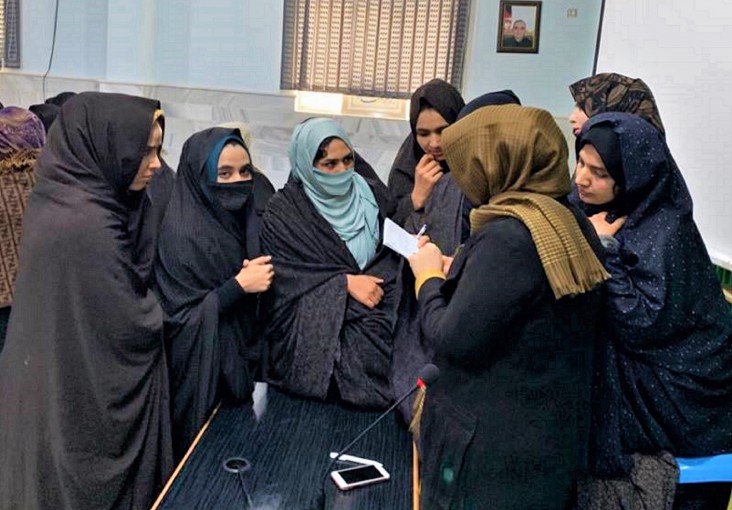Speeches Shim

In Afghanistan, the judicial entrance exam is the gateway for new judges. However, the exam only took place in Kabul, which meant that students from across Afghanistan were required to travel to Kabul and register for the judicial exam with the Supreme Court. This travel requirement made it even more difficult for female law-trained graduates. According to the Supreme Court Human and Institutional Capacity Development Assessment Report released in December 2016, there were 82 female judges at the Central Supreme Court out of a total of 108 judges. However, there were 62 female judges in Kabul province, out of a total of 249 judges. There were no female judges in Badakhshan, Kapisa, Laghman, Maidan Wardak, Nangarhar, Parwan and Sar-e-Pol provinces.
Recently, the Afghanistan Supreme Court, with the support of USAID launched, for the first time, an online registration system for the judicial entrance exam on February 9, 2019. The system aims to increase the number of women who register for the exam, by removing obstacles that may have otherwise prevented women, such as Laila, from registering.
Laila lives in a remote area of Herat province. She always dreamed of being a judge. She participated in the USAID-funded Pre-Stage Preparatory Course and felt fully prepared to take the judicial entrance exam, but the registration process was very complicated for her. It required her to travel to Kabul for the verification of all her education documents and identity card before she could register for the exam. Laila was uncertain if she could make the trip to Kabul. However, she learned from a friend who also took the Prep-Course that she could sign up for the exam online eliminating the need to travel to Kabul. Laila successfully registered and received the exam verification card, all without having to leave her community. Laila commented: “I am lucky that the registration process is now online and I could register easily with no cost and travel requirement by road,” Laila said.
Online registration facilitated the process for Laila and thousands of other students. Now she has more motivation to take the exam and become a judge. Online registration doubled the number of applicants compared to previous years, including an overall increase in female applicants participating in the exam.

Comment
Make a general inquiry or suggest an improvement.